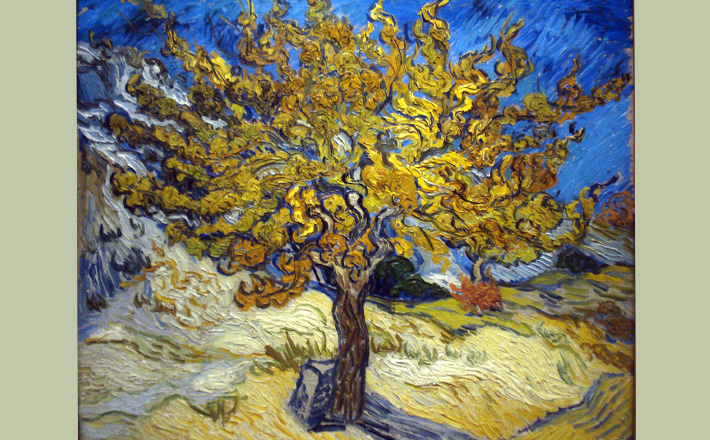Commentary on Psalm 37:1-9
Psalm 37 addresses an enduring concern, the seemingly untroubled and prosperous lives of wrongdoers (verse 1).
It is an acrostic wisdom psalm that shares some language with Proverb 24. Verse one of the psalm is found in Proverb 24:19. Verses 1-2 and 19-20 of Proverb 24 echo the theme and content of Psalm 37. Whether by composition or placement Psalm 37 serves as an expansion of the final verse in Psalm 36: “the evildoers lie prostrate; they are thrust down, unable to rise.” The psalm is also rooted in Israel’s theology of the land.
The psalmist counsels her hearers to not to “burn” because of the wicked (Psalm 37:1). The presence of women like the daughters of Heman among the psalmists means that it is possible some psalms have women as their authors, see 1 Chronicles 25:5-6; Psalm 88. The language of “burning” is the language of wrath and jealousy. The burning anger some folk who work hard to do right have while watching other folk live however they want can be quite considerable. The language the psalmist chooses for that anger is the same as the anger of Jacob’s sons over the rape of their sister in Genesis 34:7. The psalmist knows that in addition to burning with rage some of her hearers may also be burning with jealousy or as it is rendered in the NRSV, “envy.” Wrath and jealousy have the same “burning” sense in our context as they do in Biblical Hebrew idiom.
The psalm is set against the backdrop of the classic theology of the Hebrew Bible: Do good and good things will happen to you. Do bad and bad things will happen to you. This psalmist and others, like Job, know the world is not so simple. Some of those who do wrong live long and prosper while continuing to do wrong in many cases with their ill-gotten gain on display. No matter how long the lives and ascendancy of the wicked, the psalmist is sure they will come to their just end soon. In the scheme of things their lives — like all lives — are no more than grass (verse 2).
Rather than obsessing over the wicked and their ill-gotten gain the psalmist counsels putting one’s priorities in order in verse 3: Trust God to be God and do what you are supposed to do. In return the hearer will continue to live in “the land,” meaning Israel/Palestine — here it is important to remember that the psalm was written for ancient Israelites. The promise is Deuteronomistic. In Deuteronomy 11:8-9 God charges Israel to keep the entirety of what God has commanded through Moses in order to “live in the land.” In Deuteronomy 31:19-20 Israel is called to choose life, love and obey God in order that they might live in the land God promised. In fact, failure to keep God’s commandments comes with the threat that the land may “vomit” Israel out of it, (see Leviticus 18:26-28; 20:22). Verses 3 and 4 also have corollaries in Proverb 3:5-6.
Contemporary interpreters must take into account the great differences in time and place, patterns of migration, occupancy, and citizenship between biblical Israel and any modern nation. Our world is not the same as the psalmist’s and some texts do not translate easily from culture to culture. The conditional promise of “security” in verse 3 is surely resonant for contemporary readers and hearers in a world ravaged by terrorism and horrific interpersonal and international violence. It is important to remember that this psalm is a devotional text, reflecting on the world through the eyes of faith. It is not a formula for how to get what you want out of life. Psalm 37 is an inspirational psalm whose simple message is that faithfulness will yield the rewards of a life well-lived. It is important to take the genre of the psalm seriously else the text is vulnerable to claims of magical thinking, particularly in verse 4: If you just do X God will give you whatever you want.
The promise of Psalm 37:5-6 is significantly different from the one in the preceding verses. Now the concern is justice. The reader/hearer is exhorted to trust God and trust their path to God, literally roll their concerns onto God. Unlike in the previous section, the two halves are not framed as cause and effect. The claim in verse 5 is definitive. God will act. This is an answer to the person who is troubled by the evildoer in verse 1 as well. God will act and will do justice.
Having spiraled back to its beginning the psalm returns to another of its opening points in verse 8, burning anger and wrath. It repeats its opening advice — don’t “burn.” Now the psalmist supplies a rationale, don’t let the wicked burn you up because that burning rage and jealousy will lead you to evil. You don’t want to be counted among the evildoers when God does act in the interest of justice.
Verses 9-15 turn to the fate of the wicked with glee. That glee seems to have been too much for the lectionary framers who trim the text at verse 9. The lectionary portion ends with the promise that God will cut off the wicked but those who wait for God — perhaps to act for justice as promised earlier — those who wait for God shall inherit the land. Again, the land is the land of Canaan which Israel claimed as the fruit of a divine promise.
Modern readers should be aware of the many colonizing expeditions in Africa and Asia and the dispossession of native peoples in the Americas all based on the conquest of Canaan paradigm. Those interpreters were certain they were the chosen people and the land they desired was promised to them. The names of many towns and cities in the U.S. bear witness to expansionist theology that considered this land a “new Canaan.” On the civil calendar of the United States, the second Monday in October is designated as Columbus Day. Some prefer to commemorate the lives of displaced and decimated native peoples instead. Psalm 37’s theology of the land provides an opportunity for its contemporary readers to consider their theology in light of recent and ancient history.


October 2, 2016